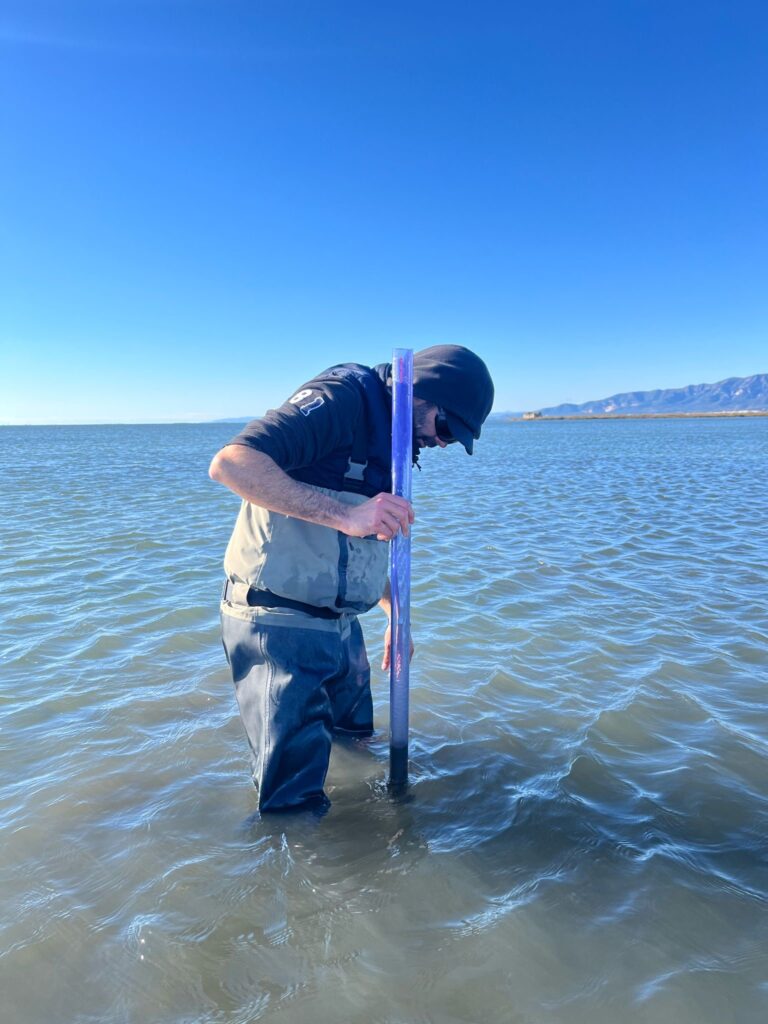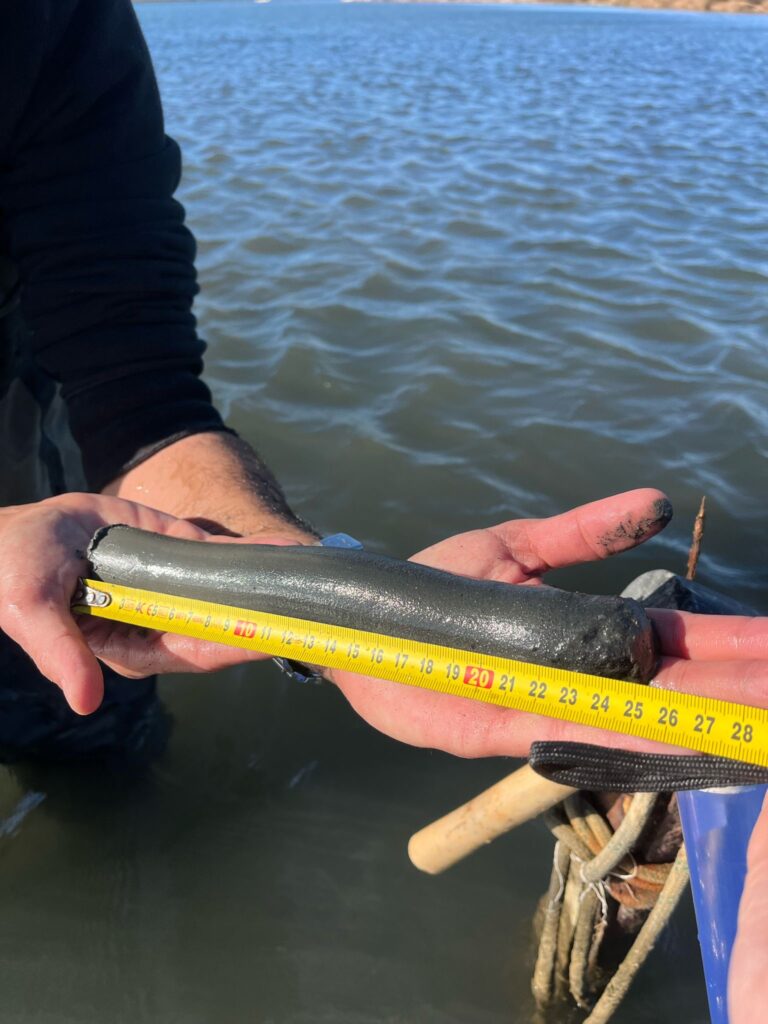Pilot 2 in action: Restoring the Ebro Delta Bays
The Ebro Delta Bays are a vital Marine Protected Area and a designated Natura 2000 site, playing a crucial role in marine biodiversity, sustainable aquaculture, and coastal resilience. As part of the EFFECTIVE project, significant restoration efforts have been carried out to improve water quality and rehabilitate degraded marine habitats.
Sediment sampling for ecosystem restoration
A key step in this initiative took place in April 2024, when the first sediment characterization campaign was conducted in Els Alfacs Bay. Partners at EURECAT collected sediment samples—both mud and sand—to analyze critical characteristics such as:
- Bulk density
- Organic matter content
- Grain size and sediment texture
- Nitrogen and carbon content
Understanding these factors provided a scientific baseline to inform future remediation strategies and optimize habitat restoration efforts.
Building on this initial work, additional sediment samples were gathered in July 2024 to analyze heavy metals and pesticide content. These findings helped ensure that any remediation and habitat restoration measures were both effective and environmentally safe.
Innovative approaches to Marine Restoration
EFFECTIVE’s restoration activities in the Ebro Delta Bays were based on two complementary strategies.
- Constructed Wetlands with Helophytic Plants:
Helophytic plants were strategically planted along the bay shore to filter drainage water from rice fields, reducing suspended sediments, excess nutrients, and pollutants before they entered the marine environment. - Seabed Remediation & Habitat Recovery:
Decades of accumulated organic mud in shallow waters had negatively impacted the Cymodocea nodosa seagrass habitat. The project removed excess mud to support seagrass recolonization, while repurposing the extracted soil to help build the constructed wetlands—after remediation if pollution levels were high.
By integrating scientific research, innovative technology, and nature-based solutions, EFFECTIVE’s Pilot 2 aimed to enhance water quality, restore seagrass meadows, and boost biodiversity. These actions also promoted sustainable aquaculture, ensuring the long-term health and resilience of the Ebro Delta Bays ecosystem.



